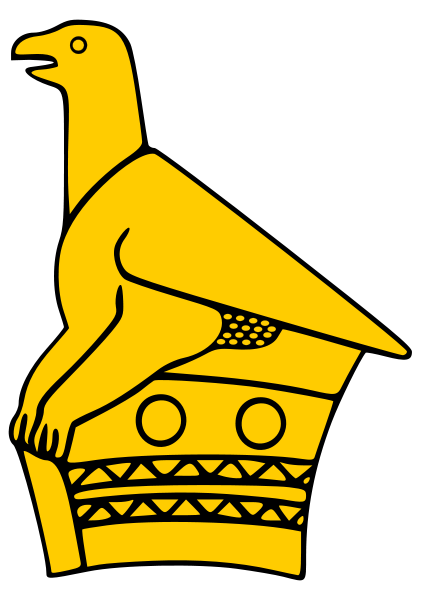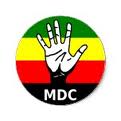Pioneer Days
Armstrong was only a boy at this time and was a character of most peculiar moods, but with boundless nerve and loyalty to the settlers' cause. He did Rhodesia a stupendous service by exploding the myth of the cave and destroying the M'Limo's power.
Our Zulu reported no suspicious changes in the programme that had been outlined. He told Armstrong much of the history of the M'Limo [Burnham relates many of the myths and superstitions held by the whites about the traditional religion; we'll discuss this below]... Our Zulu now held us in the hollow of his hand. Was he a genuine enemy of the M'Limo, we asked ourselves, or a cunning spy sent to trap us...? We decided to act on his information. The following day, when the Ring Kops [indunas] were to have their special meeting, we must be inside the cave, for to be certain of the identity of the M'Limo we must find the man who alone dared enter the holy place. We left Mangwe before dawn, following the route scouted before and repeating our previous methods...
After two hours spent in slowly working along the short distance from our cached horses, we managed to slip inside the great cave; moving at once into deep shadow so as to see out clearly without being seen... After watching for more than an hour, we saw the Ring Kops coming from the huts at the foot of the kopje...
Then I saw with surprise that a man striding in advance of the others was not a Matabele at all, but a pure Makalaka, one of the ancient people of the country. He separated from the Ring Kops and kept on alone, moving higher and higher up the path to the cave; pausing at certain points along his ascent to make cabalistic signs and utter prayers...
Now I gazed fully upon the M'Limo as he was about to enter the cave. He was a strong, active man, perhaps sixty years old, with short cropped hair; rather sharp-featured for a Negro, and of a mahogany tint rather than the Nilotic black. His face was forceful, hard, cruel, and very wide between the eyes...
Here was the author of all our woes. Because of him, my little daughter was dead and the bones of hundreds of brave men and good women were scattered on the veldt by hyeanas. Carrington's command, “Capture him if you can; kill him if you must” rang in my ears. The moment had come for action... I whispered, “Armstrong, this is your work. When he enters the cave, you kill him.” “No,” he replied. “You do it”.
So as the Mlimo came in I made a slight sound and gave him his last chance to turn the white man's bullet to water. I put the bullet under his heart.
It would have been impossible to capture him alive, even if we had chosen, for we were almost within gunshot of a black regiment, and the country swarmed with armed natives. At the crack of my rifle, we sprang out of the cave, stepping over the M'Limo's body, and ran down the path toward the huts, the nearest way to our horses. There was no further need for secrecy in our movements. [Burnham then relates how the indunas scattered because they were only armed with knobkerries; Burnham claims he and Armstrong set fire to the huts as a distraction but were still pursued over a long distance for hours]
Burnham ends his account with the words: “peace followed the downfall of the M'Limo”.
Burnham went to some lengths to substantiate his claim that the man he murdered was indeed “the Mlimo”. They arrested and sent into Bulawayo the family (some sources say associates) of the dead man, obtained affidavits from the indunas of the area that he had been the High Priest and convinced many of the old hands that they were right – at least initially (Ranger 1967: 185). Presented with these assurances the authorities, notably Earl Grey, jubilantly reported the event as a success and a major impetus towards pushing the war to a successful and early conclusion. As was reported to the Board of the BSACo, Burnham and Armstrong were said to have “killed the principal Mlimo in his cave in the Matoppos which is the head centre of the witch-craft and superstition which has had such a fatal influence upon the Natives of Matabeleland in their rising against the Government” (quoted in Ranger 1967: 186).
Sourced from the Zanj Financial Network 'Zfn', Harare, Zimbabwe, email briefing dated ? 2011


 South Devon Sound Radio
South Devon Sound Radio Museum of hp Calculators
Museum of hp Calculators Apollo Flight Journal
Apollo Flight Journal Apollo Lunar Surface Journal
Apollo Lunar Surface Journal Cloudy Nights Classic Telescopes
Cloudy Nights Classic Telescopes The Savanna - Saffer Shops in London
The Savanna - Saffer Shops in London Linux Mint
Linux Mint Movement for Democratic Change
Movement for Democratic Change